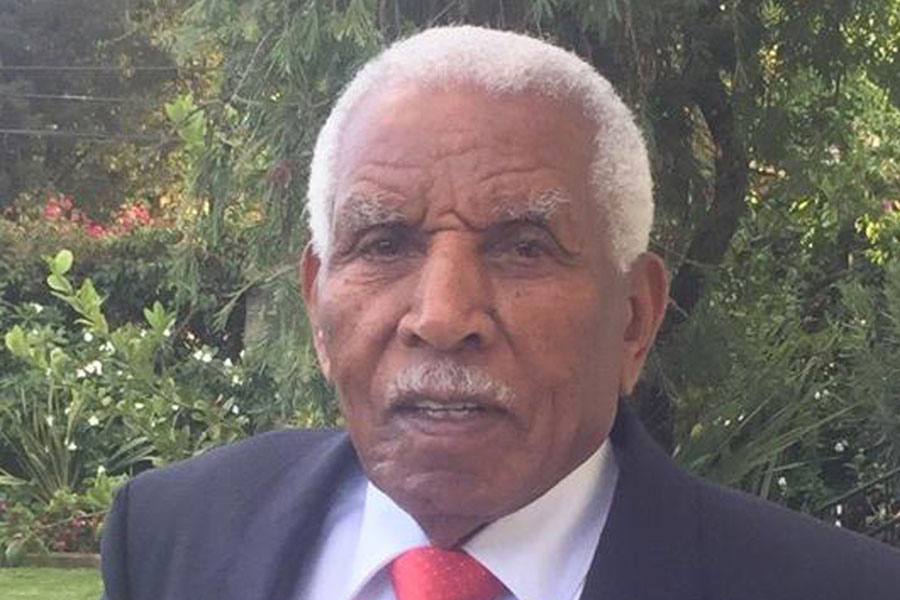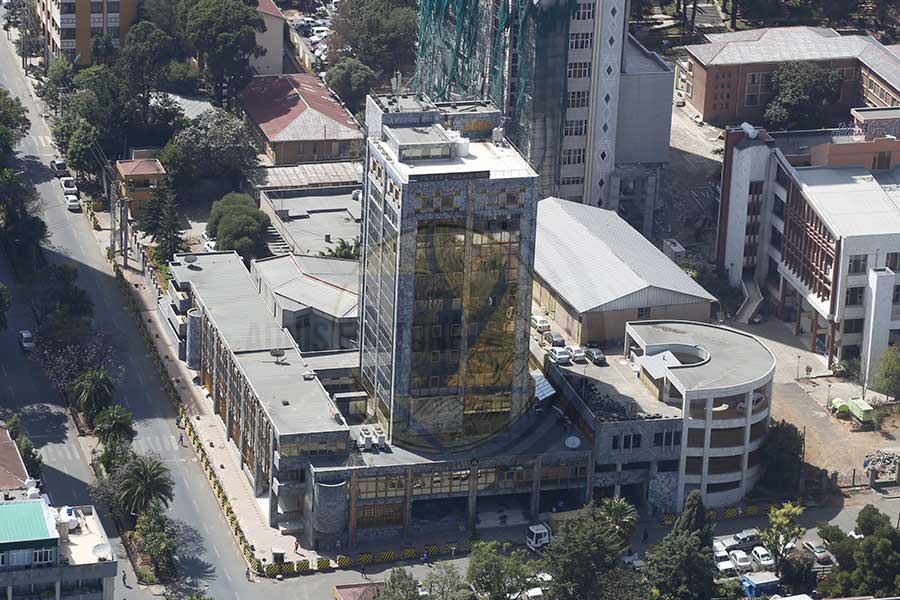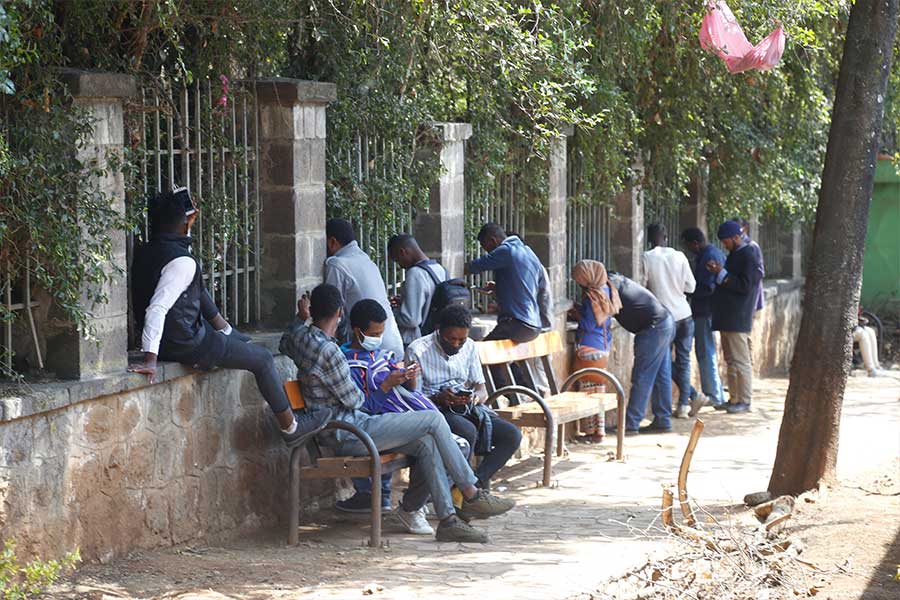
Obituary | Jun 17,2023
Girma Feyissa’s favourite Holiday was Mesqel. He drew his last breath on the early morning of September 28, 2019, as relatives were getting ready to celebrate this year’s Mesqel holiday. Perhaps it is a fitting way to go for a man who loved festivities and family gatherings.
His entire family always eagerly waited for his arrival every Saturday at lunch. He never missed it. And he never came empty-handed. He always brought his favourite meal with him – raw beef. He made sure everybody had some, and some more. Then came the jokes and his unmistakable laughter.
“Above all, he never missed an opportunity to laugh at jokes. We used to say ‘no waste of jokes.’ He enjoyed laughing even if he has heard the joke several times already,” said Bezaye Girma, his only daughter.
Nothing made him happier than these family gatherings. Those are large and quite boisterous affairs. He had three boys and a girl from Asselefech Desalegne, his wife of 56 years. There are also six grandchildren.
“He was a great dad. He loved his kids above all. He was quite modern in his way of thinking, and he believed in dialogue. He loved to take his children to the theatre,” added Bezaye.
Girma loved the theatre. He was an actor and playwright. One of his memorable roles was in a play written by the famous playwright Mengistu Lemma: "Dandew Chebudie". Girma wrote about this in one of his blogs, “Mengistu Lemma liked my part, Dandew, which I had played on the occasion of the 25th anniversary of the founding of the Ethiopian Board of Telecommunications, as it was then known.”
Girma took the name of this character he played as his pen name, which became famous among Ethiopian newspaper readers – Dandew Serbello. The second part of that is the name of an old man who was the guard at a compound surrounded by barbed wire near a small field where the neighbourhood boys used to play football. Their ball used to roll over into the compound sometimes, and their attempts to retrieve it used to irritate Serbello.
Girma was standing watching the older boys play one morning when Serbello called to him and asked him to pass him a stone through the barbed wire so he could use it to hammer a nail. Girma unsuspectingly did what he was told, but to his shock and surprise, Serbello grabbed his arm and rubbed it against the barbed wire until he bled. Serbello viewed this as punishment for all the boys that had ever entered the compound.
That injustice and the scar he carried on his hand was something he never forgot. He used it to make up part of his pen name. He had to use the pen name to avoid another injustice.
“I took it as a pen name for fear of being rounded up for my rather critical articles, which were published or read throughout the public media,” he wrote.
He started writing newspaper articles while still young. In fact, the editor of Addis Zemen, the Amharic daily, thought he looked too young to have written the first article that he submitted, so he asked him to come back with the real writer.
He became a prolific writer for nearly six decades. He used to write three and four columns a week at times. And there was no interruption. While admired for his productivity, he also received some criticism that "he wrote so much that he did not have time to write in-depth."
Close to two decades ago while Addis Fortunenewspaper was still a fledgeling young enterprise struggling to stand on its own two feet, he came up with a concept for a column. It was a timely idea. Addis Abeba being a rapidly growing city with a large rural populous joining it at a faster rate than the city development could cope with, daily life for the city dweller was getting increasingly frustrating.
What was more troubling was there were few outlets for telling this story. Expressing the daily challenges, fears and frustrations, as well as the real life of the Addis resident, his View from Arada column, a cosmopolitan view, has been going uninterrupted ever since.
Almost all the major papers have carried Girma’s writings in their pages at one time or another. So much so that it surprises people to know that writing was his hobby. Girma was a civil servant. Starting his career as a teacher, he served in a variety of public institutions and non-governmental organisations. Among the public offices, Girma had worked at the then Ministry of Planning & Economic Development, the then Ministry of Information & Culture, the Ethiopian Heritage Authority and the Addis Abeba Water & Sewerage Authority in different capacities.
He was happy to have served his country.
“He had a great love for his country, and he tried his best to share this love with his children and grandchildren by talking to them in Amharic and passed on to them all traditional values of Ethiopia,” said his daughter Bezaye.
Girma was born in Arat Kilo, Addis Abeba, 78 years ago. He attended primary and secondary education at Teferi Mekonnen School. He holds a bachelor's degree in economics from Addis Abeba University and a master's degree in development studies from Leeds University in the United Kingdom. He also took a short training on transport and communications in Brussels, Belgium and on project planning in Moscow, Russia.
He became ill and went to Belgium for treatment in 2013. He was diagnosed with kidney failure and had to start dialysis a year later.
“He will be missed every time we have questions, as he used to be our mobile dictionary. He had answers to almost every question,” said Bezaye.
[ratemypost]
Obituary | Jun 17,2023

Fortune News | Mar 05,2022

Viewpoints | Jul 10,2020

Radar | Feb 06,2021

Life Matters | Jul 13,2020

Dec 22 , 2024 . By TIZITA SHEWAFERAW
Charged with transforming colossal state-owned enterprises into modern and competitiv...

Aug 18 , 2024 . By AKSAH ITALO
Although predictable Yonas Zerihun's job in the ride-hailing service is not immune to...

Jul 28 , 2024 . By TIZITA SHEWAFERAW
Unhabitual, perhaps too many, Samuel Gebreyohannes, 38, used to occasionally enjoy a couple of beers at breakfast. However, he recently swit...

Jul 13 , 2024 . By AKSAH ITALO
Investors who rely on tractors, trucks, and field vehicles for commuting, transporting commodities, and f...

Oct 18 , 2025
The political establishment, notably the ruling party and its top brass, has become p...

Oct 11 , 2025
Ladislas Farago, a roving Associated Press (AP) correspondent, arrived in Ethiopia in...

Oct 4 , 2025
Eyob Tekalegn (PhD) had been in the Governor's chair for only weeks when, on Septembe...

Sep 27 , 2025
Four years into an experiment with “shock therapy” in education, the national moo...